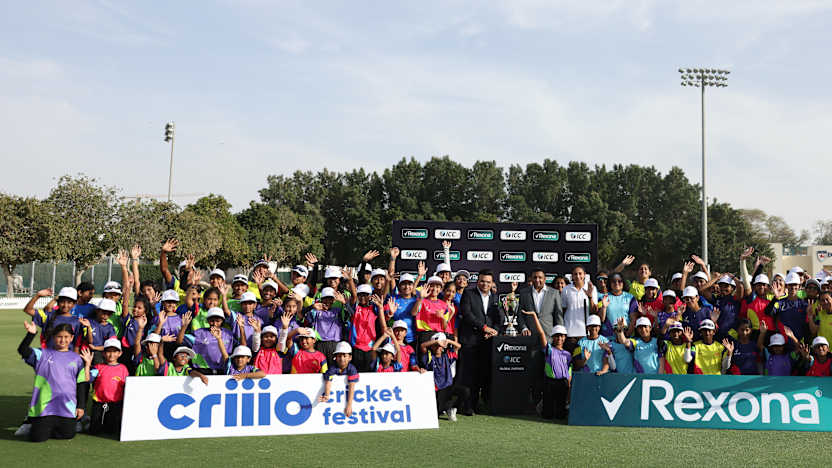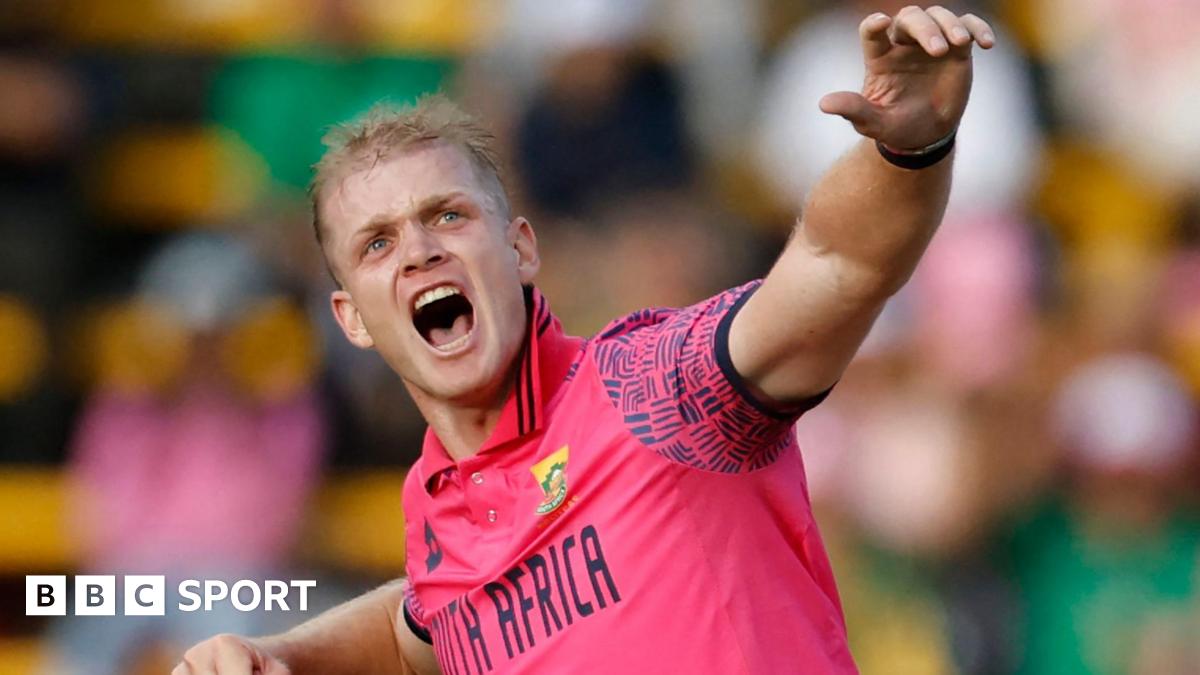For South Asian Migrant Workers in Lebanon, Cricket Erases Border Politics and War

Beirut: War is not a good enough reason for the migrant workers – mostly South Asians – to give up on their weekly game of cricket. A parking lot behind a century old church in the heart of Beirut is where they gather each week to play, connect, and forge a sense of community.>
On a bright, sunny Sunday morning at Asas Stadium in Beirut, Lebanon, Brothers XI is locked in a fierce cricket match against a team of Syrian refugees. Vice-captain Satnam Singh ‘Raju’ from Punjab’s Mansa, wearing a green jersey with Imran Khan’s face on it, yells in frustration as a teammate misses a catch. It’s a tough match, but the collective firepower of the Indian and Pakistani migrant workers on the team gets them the win.>
Raju is one of the 11 men who make up the team Brothers XI, each from different parts of India and Pakistan – a rare bond, as players from both countries rarely find themselves on the same side. The idea to form this team came from their captain, Majid Satti, from Islamabad.>
For Satti, these Sunday games are like Eid. “The moment we go home on Sunday night, we’re already thinking about next Sunday. We don’t have anyone else here. This is the only family we have.”>
‘What is now a thriving community of nine men’s cricket teams and 11 women’s teams, was once an underground sport.’ Photo: Kanika Gupta.>
Raju, who works six days a week as an electrician, putting in nine hours a day for a salary of $600-700 a month, says his work is too exhausting and their cricket activity on Sunday helps them destress and find some fun in their otherwise mundane lives. >
What is now a thriving community of nine men’s cricket teams and 11 women’s teams, was once an underground sport when Sri Lanka’s Sugath Fernando first arrived in Lebanon in the mid-1990s.>
A migrant worker himself, Fernando has worked in the country for almost three decades and calls himself lucky to have an employer who treats him and pays him well. This is a statement that puts a spotlight on the exploitative kafala system – a sponsorship-based labour system used in many Gulf countries, including Lebanon, that ties migrant workers to their employers. >
Under this system, workers’ legal status and residency are dependent on their sponsors, also known as kafeels, who control their work permits and can restrict their freedom, often leading to exploitation, abuse, and lack of legal protections.
Advertisement
>
“We do not have supportive laws in Lebanon,” says Fernando, referring to the system which leaves migrant workers with few options. >

‘You leave your family behind and only get to see them once every couple of years, for a month or two.’ Photo: Kanika Gupta.
Advertisement
>
“As a migrant, it’s hard. You leave your family behind and only get to see them once every couple of years, for a month or two. You miss everything, the good and the bad. Some of them work in such tough conditions, like being told not to talk to others from their own community or working very long hours. Cricket is their only escape where they meet every week and have some fun time together.”>
Twenty-eight-year-old Inder Singh from Jalandhar, Punjab, has been working in Beirut for the past eight years, often putting in 10 to 12-hour days, sometimes even longer. Despite having only one day off on Sundays, he prefers being on the field with his team rather than staying at home.
Advertisement
>
“We’re all brothers here,” he says about his team. When asked about the politics between India and Pakistan, he says, “We keep politics off the field.”>
“It’s a different thing outside India. Before coming to Lebanon, I had the same mindset as everyone back home. But meeting so many people here, speaking the same language, everything feels friendlier. When you’re far from home, you realise how much you need others around. What’s the point of treating anyone badly? We look out for each other. If someone’s stuck, we don’t hesitate – we call, and they come without a second thought. They don’t even think, ‘This is an Indian calling me.’”>
Raju agrees that they don’t have time to get caught up in the politics between their countries. Here in Lebanon, they’re simply Brothers XI – a team that comes together every Sunday to unwind and do what they love.>

‘We eat together, play together, and even hang out on Saturday nights.’. Photo: Kanika Gupta.>
Fernando also exclaims that the Pakistan and India team together is the biggest story in the cricket fields of Lebanon. >
“Politically, everyone knows what’s been happening in India and Pakistan. The British are aware of the rivalry within cricket between the two countries. For Americans, cricket is foreign, but when they see this team, especially Brothers XI playing together, they recognise them as a strong team in Lebanon’s cricket scene. Most of the time, they win.”>
Satti, the team’s captain relishes these games and says he doesn’t care about politics either. >
“We eat together, play together, and even hang out on Saturday nights. We came together through cricket and life, but it’s the game that really brought us close. Now, we’re not just teammates; we’re really good friends.” >
But other than the game, Fernando takes pride in the network and the community this game has built for all the migrant workers in Lebanon. >

‘With such a large community, and the biggest in Lebanon, we’ve built strong connections with churches.’ Photo: Kanika Gupta.>
“It’s a diverse community here, not just Sri Lankans, but also Bangladeshis, Pakistanis, and Indians. With such a large community, and the biggest in Lebanon, we’ve built strong connections with churches. They’ve always supported migrant workers and work closely with NGOs. Thanks to these connections, we can easily guide people to the right places. Whenever someone needs shelter, food, healthcare, or anything else, we communicate and lend a hand. Even during the war, we helped our Sri Lankan and Indian brothers and sisters with shelter and support. Now, it’s become a network – cricket is just one part, but it’s about being there for each other in tough times.”>
Despite Lebanon’s ongoing economic crisis and the recent war between Israel and Hezbollah, which peaked in October 2024 before a ceasefire in November, cricket never stopped.>
“We could see the warplanes and hear the bombs in the distance, but we kept playing,” says Inder.>
Now that the ceasefire has held, Fernando remains hopeful.>
“It was supposed to rain today,” he tells me over the phone from Beirut. “But it’s bright and sunny. Beirut’s looking hopeful, with a new president in place and perfect weather for cricket. We’re happy.”>
Related
‘Listen from one ear, ignore from the other’: Former India…
India's Rohit Sharma and Mohammed Shami (AP Photo) NEW DELHI: Former wicketkeeper-batter Syed Kirmani has expressed his opinion that experienced fast bowler Mo
India faces New Zealand in budding rivalry at Champions Trophy…
State AlabamaAlaskaArizonaArkansasCa
ICC and Unilever announce landmark partnership on International Women’s Day…
The two-year partnership, kicking off at this year’s Women’s Cricket World Cup in India and running until the end of 2027, marks the world cricket governing
IPL 2025: Mumbai Indians sign Corbin Bosch as replacement for…
Mumbai Indians have signed South Africa all-rounder Corbin Bosch as a replacement for his injured countryman Lizaad Williams for this year's Indian Premier Leag











